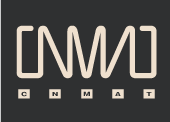LINDA BOUCHARD
Born in Québec, Canada, Linda Bouchard has been an active researcher, composer, orchestrator, conductor, and producer for over forty years. Her honors in the United States include first prizes at the Princeton Composition Contest, the Indiana State Competition, and the National Association of Composers USA Contest and a Fromm Music Foundation Award from Harvard University.
From the beginning of her career, her compositional process has emphasized her perception of timbre, color and texture as structural principles. Her work takes its inspiration from the world we live in: natural, sociological, and political.
In 2001, Bouchard was invited to participate at IRCAM’s “Stage d’Informatique Musicale” in Paris. Since then, she has been increasingly interested in how our traditional artistic practices are influenced by the integration of new technologies. In 2005, Bouchard founded New Experimental Music, Art and Production (NEXMAP), a nonprofit arts organization that explores this evolving artistic landscape. She acted as artistic director until January 2016.
In 2017, she received a multiyear grant from the Canada Council for the Arts for her project titled Live Structures, which she developed in partnership with Matralab at Concordia University in Montreal. In this research, she is exploring her various sources of inspiration to include data interpretation in the construction of her compositions — data from complex natural behaviors and from the analysis of rich sounds. She first developed Flock to Music in collaboration with Metacreation Lab in Vancouver, BC which uses custom modeling software to imitate the behavior of complex natural phenomena. During a residency at matralab, (Concordia University in Montreal) and in collaboration with designer Joseph Brown and many international improvisers, they created a graphical music notation tool called Ocular Scores which generates images from the analysis of complex sounds.
During her research residency at the Center for New Music and Audio Technologies (CNMAT) at UC Berkeley in California, Linda is working closely under the supervision of Carmine Emanuele Cella and Edmund Campion to redesign the original version of Ocular Scores for wide distribution. Jeffrey Lubow is working on the delicate task of coding the new version.
You can follow the details of Linda Bouchard’s research at www.livestructures.com
